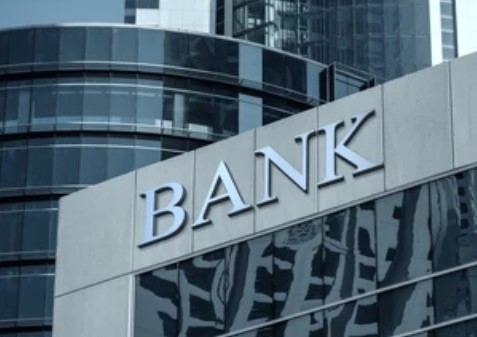
What are Senior Secured Loans and how do they work?
Senior secured loans, also called senior bank loans, are a form of debt financing issued to companies by financial institutions such as banks. These companies then repackage these loans and then sell them to investors.
This category of bank loans is considered “senior” to all other debt claims made against a borrower if they declare bankruptcy. In other words, it will be the first to be repaid before other creditors or stockholders can claim a debtor’s assets.
This guide explores everything you need to know about senior secured loans, how they work and their associated benefits.
Jump to:
- What are senior secured loans?
- How do senior secured loans work?
- What is the difference between senior secured loans and high yield bonds?
- What type of collateral is used to secure senior loans?
- Are senior secured loans risky?
- Get expert help from a senior secured loan broker
- FAQ
We are expert secured loan brokers
We have access to over 200+ lenders in the UK to get you the best loan rates
Get your Quote
What are senior secured loans?
A senior secured loan – also called floating rate loans, bank loans, leveraged loans, or syndicated bank loans – is a short-term debt obligation issued by a bank to a private corporation. They are usually made to companies with credit ratings considered below investment grade.
Companies that apply for these loans typically use them to fund expansion activities, finance acquisitions, or for general corporate utility. Companies also take out these loans for recapitalisation to restructure their equity and debt mixture, improving the corporation’s capital structure.
Senior secured loans typically have a maturity period between three and five years, although some banks extend them to eight years. Borrowers have an early repayment option since senior secured debt doesn’t have a non-call term.
How do senior secured loans work?
Senior bank loans sit at the top of the claims hierarchy. They are the first loans recovered if a borrower goes bankrupt and are secured through a lien placed on the borrower’s asset collateral.
Senior debt is in many ways similar to a conventional business loan. Companies take them out to inject capital into the business to fund its day-to-day operations and any other cash flow requirements it might have.
Floating rate loans are secured against a business’ real estate, property, machinery, equipment, and inventory, all of which are used as collateral.
A senior secured bank loan can be considered several smaller loans consolidated into a single medium-term secured loan that is then disbursed to a corporation. On the flip side of the coin, this loan is packaged as a financial product that individuals and entities can invest in.
In other words, rather than make out multiple loans to multiple small businesses, these loan products are consolidated into one large debt obligation, which is made out to a corporation and, concurrently, sold off to an institutional investor as a financial product. These investors then receive a return on their investment in the form of interest payments made by the companies that took out the loan.
Since a senior bank loan sits at the top of a corporation’s capital structure, in the event the company goes bankrupt, the assets that were used to secure the debt are disposed of first. The sale proceeds are then shared among the senior loan investors before any other creditors recover their losses.
When applying for a senior secured loan, ensure the lender you’re dealing with is licensed and regulated by the Financial Conduct Authority.
What is the difference between senior secured loans and high yield bonds?
While the setup of senior secured loans and high yield bonds – also known as junk bonds – may sound similar, some distinct features differentiate them. Below is an overview of the main ones:
Location in the capital hierarchy
Senior secured loans are located at the top of a company’s capital structure.
This means that senior loans are given precedence in claims on the corporation’s disposable asset collateral in the event of bankruptcy.
They rank above high-yield bonds, equity, and mezzanine debt at the point of claims recovery and are secured against the company’s critical assets.
Covenant type
Senior secured debt agreements contain several clauses to safeguard the lender’s interests. The protections are covenants and trigger corrective measures if a company’s financial position points towards an impending default.
Since these covenants are supposed to ensure the company “maintains” a certain financial position, senior secured loans are characterised by maintenance covenants.
On the other hand, high yield bonds can only enforce incurrence covenants, which can only be triggered if the borrower moves to acquire additional debt before meeting certain financial requirements. These don’t offer lenders the same level of protection as maintenance covenants.
Correlation with other financial instruments
From an investment standpoint, senior secured loans have historically outperformed other financial instruments even during periods of crises. The yields generated by senior loans usually self-correct due to their floating rates. These rates adjust upwards according to the base rate, such as the London Interbank Offered Rate. The same can’t be said for high yield bonds.
Inflationary hedging
Unlike the fixed-rate attributes of high yield bonds, senior secured loans have floating rates and coupon prices that periodically reset every month or quarter. This provides institutional investors with inflationary hedging against rising interest rates since they are not as sensitive to the changing market conditions as high yield bonds.
What type of collateral is used to secure senior loans?
A company’s critical assets secure senior secured bank loans.
These include real estate, property, machinery, equipment, and inventory.
In the event of bankruptcy, these assets will be disposed of, and the sale proceeds will be used to repay the bank loan. Senior secured loans take precedence over other creditors or stockholders when laying claim to the debtor’s asset collateral.
Are senior secured loans risky?
Companies whose ratings are considered below investment grade are typically the ones to whom senior secured loans are made out. This means that they have a comparatively higher degree of credit risk.
While senior loans have a marginally lower risk than high-yield bonds, they present a higher risk level than investment-grade corporate bonds.
Get expert help from a senior secured loan broker
 If you’re looking to invest in senior secured loans, there are two ways you can go about it. On the one hand, you could do your own extensive credit research to determine which securities to purchase.
If you’re looking to invest in senior secured loans, there are two ways you can go about it. On the one hand, you could do your own extensive credit research to determine which securities to purchase.
Keep in mind that you should only go this route if you consider yourself a professional investor.
A better option would be to go through a trusted investment manager to help you purchase individual securities. They understand the investment market and know which mutual funds will likely generate a high yield.
Likewise, suppose you are a below-investment-grade company seeking a senior secured loan to inject capital into your business.
In that case, a loan broker can help you secure a bank loan at the most competitive interest rate.
FAQS
Senior secured loans vs high yield bonds – which one should you invest in?
Most senior secured loans are usually given to corporations with a below-investment-grade rating. These loans tend to generate higher yields than your run-of-the-mill investment-grade corporate bond.
However, in the event of bankruptcy, senior secured loan investors will get precedence over their high-yield counterparts. This means that their yields are lower.
In short, senior secured loans offer attractive risk-adjusted returns compared to corporate bonds. On the other hand, senior loans have lower yields than high yield bonds.
Do senior secured loans have a fixed or variable yield?
Senior secured bank loans are characterized by floating rates that vary based on the reference rate and reset periodically every month or quarter. On the other hand, high yield bonds are characterized by their fixed rates.
Should I include senior secured loans in my investment portfolio?
If you have a standard fixed-income investment portfolio, incorporating senior loans, known for being less rate-sensitive than any other asset class, would be a great way to diversify. The fact that they have a negative correlation with government bonds adds a measure of protection when prices go down.
How do you apply for a senior secured loan?
To apply for a senior secured loan, you can do so below and we can get you approved within just 24 hours:
